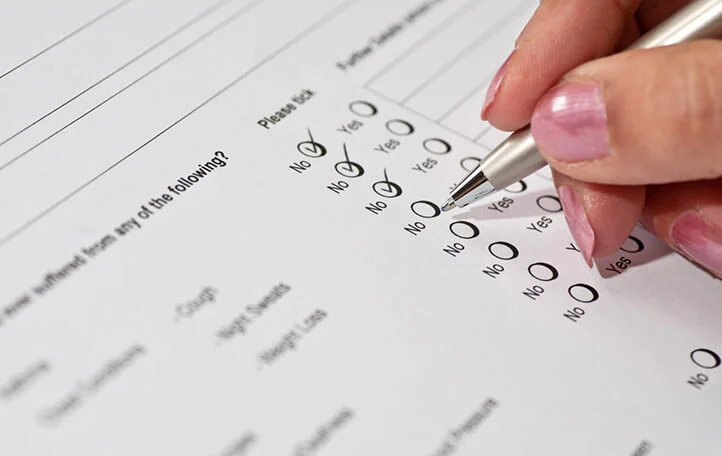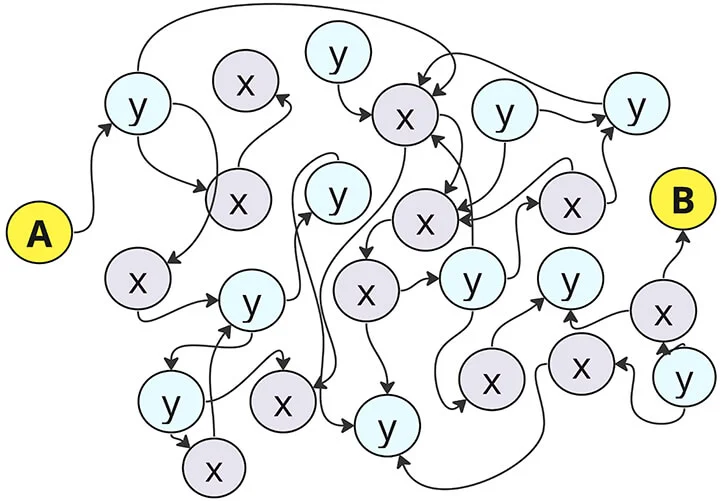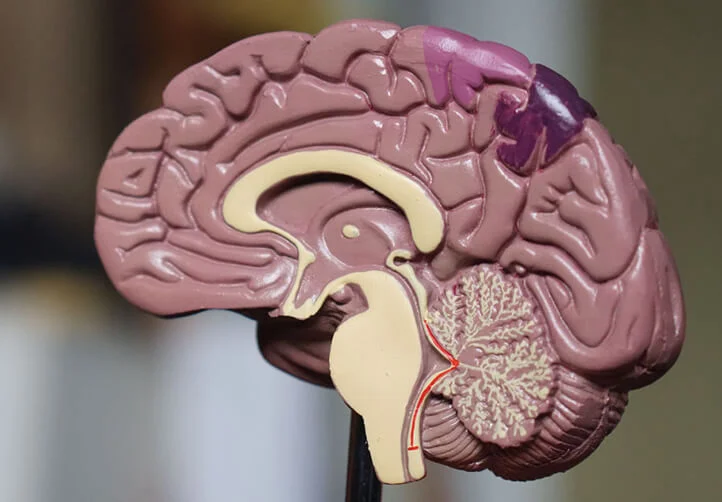Experimental Psychology is a field of psychological science that uses the scientific method and rigorous experimental procedures to study human behavior, cognitive processes, emotions, and relationships. It forms the foundation of modern scientific knowledge about the human mind and plays a fundamental role in the development of psychology as an empirical science.
Although the idea of applying the experimental method to study the human mind dates back to the works of ancient philosophers like Aristotle and René Descartes, experimental psychology as a distinct scientific discipline only emerged in the late 19th century. Its founder is considered to be the German scientist Wilhelm Wundt, who in 1879 established the world’s first laboratory of experimental psychology at the University of Leipzig.
In his early studies, Wundt used the method of introspection, where subjects were required to report on their subjective sensations, thoughts, and feelings in response to stimuli. The goal was to study the structure of consciousness and elementary mental processes.
However, the pursuit of more objective methods of observation led to the development of behaviorism in the early 20th century. The founder of this approach was the American psychologist John B. Watson, who called for making psychology a fully objective science, studying only observable behavior using methods similar to those of the natural sciences.
A key role in the formation of behaviorism’s methodology was played by the research of Edward L. Thorndike, aimed at studying animal behavior. His famous experiments with the “problem box” vividly demonstrated the trial-and-error process of developing new behavioral skills in cats.
Another influential behaviorist was B.F. Skinner, whose experiments on operant conditioning and reinforcement with pigeons, rats, and other animals laid the foundation for the theory of learning and principles of behavior modification. Skinner’s experimental chambers, known as “Skinner boxes,” became a classic tool in behaviorist research.
The limitations of the behaviorist approach, which ignored internal mental processes, and its inability to explain many aspects of higher mental activity led to the formation of cognitive psychology in the 1950s. Its pioneers include scholars such as Jerome Bruner, Noam Chomsky, and Ulric Neisser.
Cognitive psychology focused on complex cognitive processes—perception, attention, memory, thinking, problem-solving, decision-making. Special laboratory experiments and computer simulations using methods like chronometry (reaction time measurement) were developed to study these processes.
An important role in the development of cognitive psychology was played by computer metaphors and analogies, which viewed the human mind as a kind of information processing system. This allowed for the application of concepts and methods from fields such as cybernetics and information theory.
Since the 1990s, neuroscience has been actively developing—an interdisciplinary field aiming to establish links between mental functions and processes within the physical structure of the brain. Neuropsychological and neurocognitive experiments have increasingly utilized modern brain activity imaging technologies—functional magnetic resonance imaging (fMRI), positron emission tomography (PET), electroencephalography (EEG), and other methods of recording neural activity.
Today, experimental psychology allows psychologists to obtain objective, reliable, and reproducible data on human mental activity. The results of experiments form the empirical basis of psychological theories and ensure the growth of scientific knowledge in this field. Without experimental research, further development of psychology as a rigorous science would be impossible.

Principles and Methods of Experimental Psychology
Experimental psychology is based on the application of a strict scientific method to obtain objective, reliable, and reproducible data on mental processes and human behavior.
Experimental research involves the systematic manipulation of independent variables in controlled conditions and the precise measurement of dependent variables.
Adhering to clear principles and procedures of planning, conducting, and analyzing experiments is a necessary condition for ensuring the validity and reliability of the results obtained.
The Scientific Method in Psychology
The scientific method in experimental psychology includes the following key steps:
- Formulating a hypothesis based on existing theories, preliminary observations, or practical needs.
- Planning and conducting the experiment to empirically test the hypothesis. The experiment involves manipulating independent variables and controlling extraneous factors.
- Collecting experimental data using standardized scientific procedures of observation, measurement, psychometric methods, and apparatus.
- Processing and analyzing data using quantitative methods of mathematical statistics.
- Interpreting results in accordance with the initial hypothesis and theoretical model, formulating well-founded conclusions.
- Presenting results of the study in the form of scientific publications for peer review and dissemination within the expert community.
Independent and Dependent Variables
A key element of any experiment is the distinction between independent and dependent variables.
- Independent variable is the factor or condition that is intentionally manipulated by the researcher.
- Dependent variable is the measurable aspect of behavior or mental process that is assumed to change in response to variations in the independent variable.
For example, in a study on the effectiveness of different memory techniques, the independent variable could be the type of mnemonic device used (repetition, associations, method of loci, etc.), and the dependent variable would be the number of correctly recalled elements in a subsequent memory test.
Control Groups and Randomization
To ensure high validity and reliability of an experiment, it is necessary to use control groups and randomization procedures.
- Control group is a group of participants not exposed to the independent variable (e.g., not subjected to the new experimental method). The performance of the control group is compared with the experimental group to determine the effect of the studied factor.
- Randomization involves the random assignment of all participants to experimental groups to eliminate selection bias. This helps neutralize the influence of any individual differences between participants, aside from the independent variable’s effect.
Types of Experimental Designs
Depending on specific research objectives, the number of factors studied, and the requirements for control and generalization of results, various types of designs are used in experimental psychology:
- Between-subjects design: participants are randomly assigned to different experimental conditions, with each condition applied to a separate group. Comparisons are made between groups.
- Within-subjects design (repeated measures): all participants undergo all experimental conditions in a specific sequence. Measurements for each condition are taken within the same group.
- Mixed design: combines both within- and between-subjects designs, i.e., there is variation in conditions within a group and between different groups.
- Factorial designs: allow for studying the influence and interaction of several independent variables on the dependent variable.
The choice of a specific experimental plan is determined by the nature of the research question, the number of independent variables, the size of the effects studied, the significance of individual differences between participants, and other factors.

Main Types of Experiments
In experimental psychology, a wide range of various types and forms of experimental research is applied. They are usually classified based on the degree of control over experimental conditions and the specifics of the situation under study. The choice of a specific type of experiment depends on the research objectives, the requirements for internal and external validity, as well as ethical and practical constraints.
The most common classification distinguishes between laboratory, naturalistic, field, and quasi-experimental studies. Each type has its strengths and weaknesses, influenced by the balance between strict control of variables and proximity to real-life conditions. Understanding the features of different types of experiments helps researchers select the most appropriate design to solve specific scientific problems in various areas of psychology.
Laboratory Experiments
These are conducted in highly controlled conditions in a scientific laboratory, ensuring the maximum isolation of studied variables from external influences. The laboratory setting significantly increases the internal validity of results by regulating all details of the experimental situation and procedure.
Examples of laboratory experiments:
- Studying the effects of reinforcement on the formation of new behaviors in Skinner’s experimental chambers.
- Investigating the influence of various stimuli and instructions on the accuracy and reaction time in cognitive tasks using computer programs.
- Using virtual reality to model decision-making situations in conditions of risk.
Despite the advantages of strict variable control, overly artificial laboratory conditions may reduce ecological validity and complicate the application of results to real-life situations.
Naturalistic Experiments
These experiments are conducted in situations as close as possible to the natural everyday life and activities of the subjects. This could be research conducted at home, in a school or kindergarten, in the workplace, in public places, etc.
Examples of naturalistic experiments:
- Studying the development of children in their familiar home environment.
- Observing customer behavior in real supermarket shopping areas.
- Experiments manipulating factors of the office environment (lighting level, noise, etc.) on the productivity of employees.
The main advantage of naturalistic experiments is the high ecological validity of the results. However, they significantly lag behind laboratory studies in terms of control over extraneous variables.
Field Experiments
Field experiments combine the advantages of a naturalistic situation with the ability to actively manipulate independent variables by the researcher. They involve direct intervention and targeted manipulation of conditions in the real-life environment of the subjects.
Examples of field experiments:
- A comparative study of the effectiveness of different teaching methods in real school classrooms.
- Testing the impact of various advertising campaigns by varying the content or distribution channels of the advertisement.
Field experiments possess the advantages of naturalistic studies in terms of ecological validity while maintaining the ability to control independent variables. However, their implementation is often constrained by various practical and ethical considerations.
Quasi-Experiments
In quasi-experiments, the influence of some event, intervention, or change in conditions is studied without actively manipulating the independent variables by the researcher. Quasi-experiments are characterized by the absence of random assignment of participants to conditions and often the absence of a control group.
Examples of quasi-experiments:
- Evaluating the psychological consequences of a natural disaster or other traumatic event on affected individuals.
- Investigating the effects of introducing a new educational program compared to the previous curriculum.
- Studying the impact of introducing a new organizational structure on the psychological climate and behavior of employees in a company.
The main limitation of quasi-experiments is the inability to provide strict control over all variables. However, they allow us to study real-life phenomena and processes that are often difficult to recreate in a laboratory setting.

Areas of Application of Experimental Psychology
Experimental psychology finds exceptionally broad application in many areas of modern psychological science. Thanks to its ability to provide objective, reliable, and reproducible data, it serves as a fundamental tool for empirical research into various mental processes, personality traits, and human behavior. Controlled experiments allow for the discovery of cause-and-effect relationships, testing theoretical hypotheses, and advancing psychological knowledge.
From fundamental fields such as cognitive and general psychology to applied branches like clinical, social, organizational psychology, and developmental psychology, experimental methods find wide application. The variety of experimental procedures—laboratory, field, naturalistic, quasi-experiments—makes them a flexible and powerful tool for studying the psyche in different conditions and contexts of human life.
Cognitive Psychology
Cognitive psychology is one of the main areas where the experimental method is applied. It focuses on fundamental mental processes related to how humans receive, store, process, and use information.
Various experimental procedures are used to study cognitive functions such as:
- Attention (selective, distributed, sustained).
- Perception of visual, auditory, and other sensory information.
- Memory processes (short-term, long-term, episodic, semantic, etc.).
- Thinking, reasoning, problem-solving, creativity.
- Psycholinguistic processes of understanding and producing speech.
In cognitive psychology, laboratory experiments using a variety of stimulus materials, computerized tasks, and chronometric methods for precise measurement of reaction times are widely used.
Social Psychology
The experimental method has a long and solid tradition in social psychology, which studies the influence of social factors, group processes, and interpersonal relationships on people’s thoughts, feelings, and behavior. Famous social psychological experiments include:
- Solomon Asch’s experiment on conformity and group pressure on individual judgments.
- Philip Zimbardo’s Stanford prison experiment, which demonstrated the phenomenon of obedience to authority and role adoption.
- Henri Tajfel’s series of experiments on intergroup perception, prejudice, and in-group favoritism.
- Research on the formation of first impressions of others, self-esteem, and self-awareness in a social context.
- Studies on the factors influencing prosocial behavior, altruism, and aggression in interpersonal relationships.
In social psychology, methods such as role-playing and the simulation of real-life interpersonal and intergroup situations with various experimental manipulations and instructions are often used.
Personality Psychology
Experimental procedures are widely applied in personality psychology to study stable individual characteristics, motivational factors, and other determinants of behavior. Examples of research include:
- The influence of different types of temperament and personality traits (extraversion, neuroticism, etc.) on performance.
- Experiments on achievement motivation, aggression, and personal value orientations.
- The role of self-esteem, locus of control, optimism, and pessimism in behavioral regulation.
- Studies of defense mechanisms (repression, projection, rationalization) in the psychoanalytic tradition.
- Investigations of the consistency (congruence) between personality traits and actual behavior in different situations.
For personality assessment, personality questionnaires, projective techniques, and laboratory simulations of various life situations are widely used.
Developmental Psychology
Experimental methodology is actively applied in developmental psychology to study the regularities of personality and cognitive growth across all stages of ontogenesis—from infancy to old age.
Famous examples of experimental studies include:
- Mary Ainsworth’s “Strange Situation” experiment to study attachment formation in children to their mothers.
- Jean Piaget’s series of naturalistic experiments on identifying stages of intelligence and thinking development in children.
- Lawrence Kohlberg’s research on moral development using moral dilemmas.
- Experiments studying the development of mental representation in children (false belief tasks).
In child psychology, naturalistic observations, quasi-experiments in play situations, and longitudinal (long-term) studies to track changes over time are widely applied.
Clinical Psychology
In clinical psychology, the experimental method is used to study the causes, mechanisms, and manifestations of various mental disorders, as well as to develop and test new psychotherapeutic methods.
Examples of clinical experiments include:
- Studies on the effectiveness of various forms of psychotherapy (cognitive-behavioral therapy, Gestalt therapy, etc.) for treating depression, anxiety disorders, phobias, and other conditions.
- Investigations into the effects of medications and their combination with psychotherapy on the course of mental illness.
- Experiments on simulating the symptoms of mental disorders (experimental induction of anxiety, dissociative states, etc.).
- Research into the effectiveness of desensitization procedures in treating post-traumatic stress disorder (PTSD).
In clinical practice, in addition to laboratory procedures, naturalistic and quasi-experimental studies in hospitals and rehabilitation centers are widely used.
These and many other areas demonstrate the broad possibilities of applying experimental methods to obtain reliable scientific knowledge about various aspects of human mental life.

Ethical Aspects of Experimental Research
When conducting experiments involving humans, it is crucial to follow ethical principles and norms that ensure the protection of the rights, dignity, and well-being of the participants. The main ethical principles, formulated in the 1979 Belmont Report, are:
- Respect for persons, which entails protecting the autonomy of participants and considering their right to make informed decisions about participation. Vulnerable groups (e.g., children, people with disabilities) require special protection.
- Beneficence, which involves maximizing the potential benefits of the research while minimizing risks and harm to participants. Intentional physical or psychological harm is unacceptable.
- Justice, which implies fair distribution of all risks and benefits among participants without discrimination.
Informed Consent
A key ethical requirement is obtaining informed voluntary consent from every potential participant. The procedure includes:
- Providing full information about the goals, methods, duration, and possible risks/benefits of the research in an accessible form.
- Confirming the voluntary nature of participation and the right to withdraw at any time without penalty.
- Ensuring confidentiality of participant data and no personal benefit for the researchers.
Confidentiality of Data
Any personal data obtained during experimental research must be carefully protected from unauthorized access by:
- Anonymizing and coding participant information.
- Storing data in encrypted form with restricted access.
- Destroying personal records and identification codes after the study is completed.
Institutional Review Boards (IRBs)
To ensure adherence to all ethical norms, any experimental study involving humans must receive prior approval from an independent ethics committee. These committees carefully review research protocols and determine the ethical acceptability of the study.
In cases where participants must be unaware of the true goals of the experiment (e.g., studies on deception or conformity), researchers are required to conduct detailed debriefing after the procedure.
Despite the inevitable limitations imposed by ethical norms, adherence to appropriate requirements protects the dignity and rights of participants and increases public trust in psychological science.

Methods of Collecting and Analyzing Experimental Data
Obtaining valid and reliable results in experimental research critically depends on the methods used for collecting empirical data and their subsequent statistical processing. In experimental psychology, a wide range of quantitative and qualitative methods are employed to measure variables, allowing researchers to obtain multidimensional information about mental processes, behavior, and subjective experiences in controlled conditions.
The choice of specific data collection methods is dictated by research tasks, experimental design, and the type of phenomena under study. A multimethod approach is often used, combining behavioral measures, psychophysiological indicators, self-reports, and objective performance outcomes. After collecting the “raw” empirical data, they are coded and subjected to statistical analysis using modern software and quantitative analysis methods.
Data Collection
In experimental psychology, a wide range of methods for collecting empirical data is used, including:
- Observation and self-reports (self-assessment scales, questionnaires, diaries, etc.).
- Behavioral measures (reaction time, error rate, choice of alternatives, etc.).
- Psychophysiological indicators (heart rate, galvanic skin response, EEG, functional MRI).
- Performance outcomes (results of problem-solving tasks, drawings, essays, etc.).
The choice of specific methods depends on the subject and goals of the research, as well as the type of mental phenomena under study. Often, a combination of several methods is applied to enhance the reliability and validity of the conclusions.
Data Processing and Analysis
After data collection and coding, statistical processing is carried out, which usually includes the following steps:
- Calculation of basic descriptive statistics (mean, variance, standard deviation, etc.).
- Application of statistical tests to check null hypotheses (t-test, ANOVA, non-parametric statistics).
- Correlation analysis to identify relationships between variables.
- More complex multivariate statistical methods (regression analysis, structural equation modeling).
The choice of specific statistical methods depends on the type of data, experimental design, and the hypotheses being tested. Statistical software packages (SPSS, R, Statistica, etc.) are widely used in psychological research for processing data.
After statistical analysis, the results are interpreted in accordance with the theoretical assumptions and hypotheses of the study. The final conclusions must consider the limitations of the methodology used and discuss alternative explanations.

Experimental Psychology: Advantages and Limitations
Experimental psychology is undoubtedly one of the most important tools for obtaining scientific knowledge. It has several significant advantages:
- Provides objective and reproducible data instead of subjective conclusions.
- Allows for the identification of cause-and-effect relationships between variables.
- Enables maximum control over the conditions and factors under study.
- Forms the basis for the development of theoretical knowledge in psychology.
However, experimental psychology has certain limitations, including:
- The problem of generalizing laboratory results to real-life situations.
- The artificiality of laboratory conditions and the lack of ecological validity.
- The influence of side effects (placebo effect, experimenter bias, participant expectations).
- Ethical issues in experiments on humans, especially in clinical psychology.
Nevertheless, experimental psychology continues to develop actively, integrating new methods and technologies.

Future Prospects for Development
In the future, experimental psychology will undoubtedly continue to evolve, incorporating the latest technological advancements. Widespread use of innovative methods is predicted, such as:
Virtual Reality (VR)
The application of VR systems opens new opportunities for simulating realistic situations and environments with a high level of experimental control. The virtual environment will allow the safe recreation of situations difficult to observe directly (dangerous conditions, studying phobias, etc.).
Brain-Computer Interfaces
Registering and decoding human brain activity through non-invasive interfaces will provide unique access to decision-making processes, intentions, and other cognitive processes in real time.
Mobile Technologies
The growth of mobile devices will enable experimental research to extend beyond laboratories—into the everyday lives of participants. Methods for collecting big data and analyzing psychological phenomena in natural conditions will continue to develop.
Computational Methods and Machine Learning
The exponential growth in computational power and machine learning algorithms will revolutionize the analysis of complex experimental data, particularly when working with large arrays of psychophysiological indicators.
Personalized Models
Through the processing of large volumes of individual data and considering participants’ personal characteristics, it will become possible to build personalized models of cognitive processes, behavior, and development for each individual.
Despite technological advancements, there will still be a need for controlled experiments to test theoretical hypotheses and ensure high internal validity of results. The principles of the scientific method will continue to play a crucial role, alongside adherence to ethical standards.
In the future, experimental psychology will maintain its status as a fundamental branch of knowledge, serving to obtain reliable scientific facts about the nature of human psychology. Based on accumulated empirical data, psychology will be able to develop more precise and comprehensive theories of human mental activity.

Conclusion
Experimental psychology plays a key role in the development of psychology as a rigorous empirical science. The use of the scientific method and controlled experimental procedures allows for the collection of objective and reproducible data on complex mental processes, behaviors, and human interactions.
The results of experiments provide the empirical basis for building theoretical models of the human psyche. At the same time, theoretical concepts serve as the starting point for planning new experimental studies within the cyclical process of scientific inquiry.
The experimental method finds broad application in many areas of psychology—cognitive, social, clinical, personality psychology, developmental psychology, and others. The variety of experiment types (laboratory, field, quasi-) allows for the study of mental phenomena in different environments and situations.
A crucial condition for conducting research involving humans is the strict adherence to ethical principles, ensuring the protection of participants’ dignity and well-being. Procedures for informed consent, data confidentiality, and institutions of ethical oversight are standard practice in modern experimental psychology.
Despite certain limitations, such as problems with generalization, artifact effects, and ethical complexities, the experimental method remains a fundamental tool for the scientific study of the mind. In the future, experimental psychology will continue to advance by integrating innovative technologies such as virtual reality, brain-computer interfaces, mobile devices, and machine learning algorithms for data analysis.
The accumulation of experimental facts about the nature of the human mind and behavior will enable psychology as a science to reach new heights in understanding the complex processes underlying our mental life, developing more refined theories, models, and practical applications of the knowledge gained.




